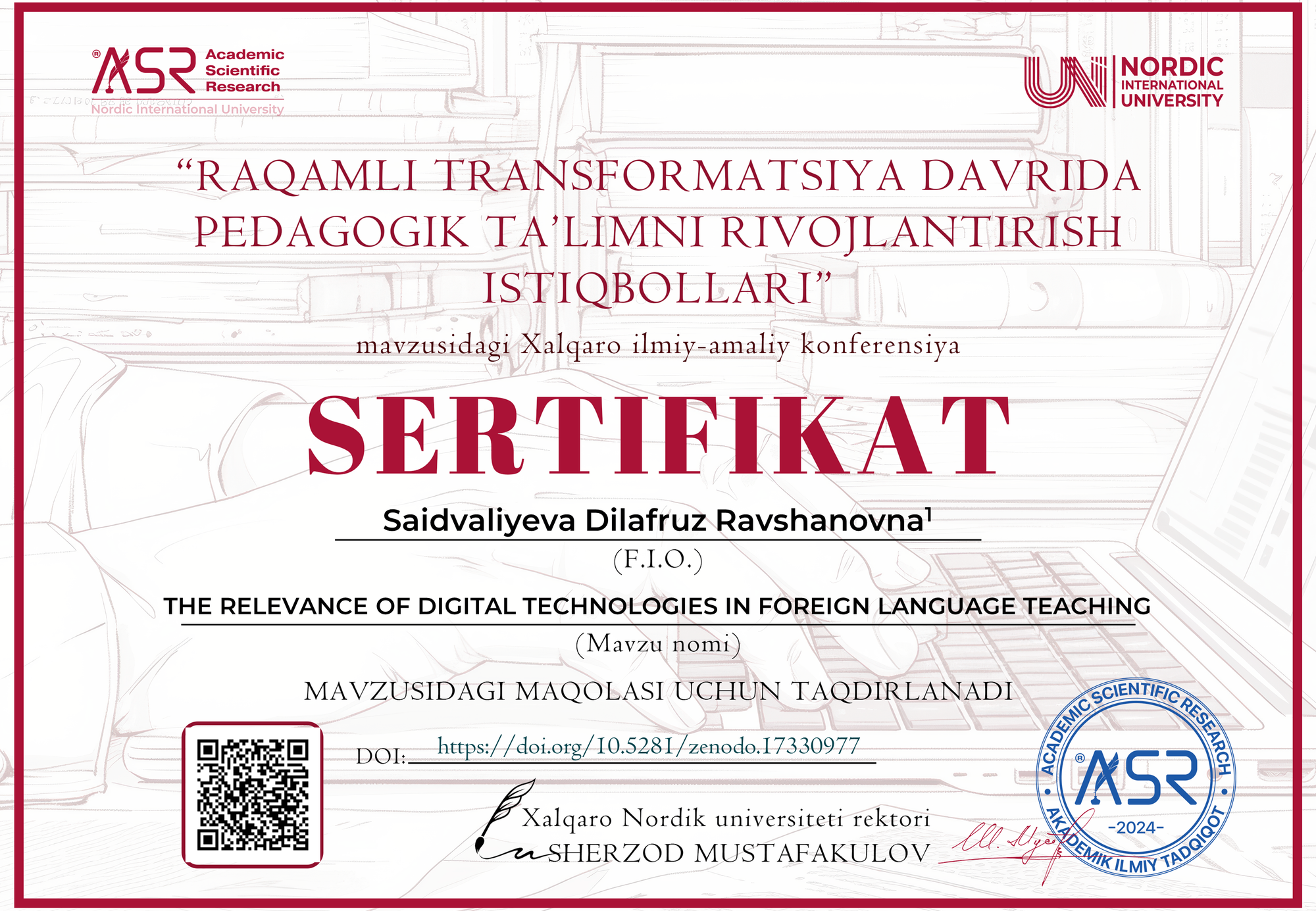Saidvaliyeva Dilafruz Ravshanovna1

DOI: https://doi.org/10.5281/zenodo.17330977
Google scholar:
Zenodo community: https://zenodo.org/records/17330977
Nordic_press journal: https://research.nordicuniversity.org/index.php/nordic/issue/view/14
MAQOLANI YUKLAB OLISH
SERTIFIKATNI YUKLAB OLISH
TAQRIZ:
The article titled “The Relevance of Digital Technologies in Foreign Language Teaching” presents a thorough and timely analysis of how modern information and communication technologies (ICT) — particularly podcasts — enhance the process of teaching and learning English as a foreign language. The author effectively discusses the pedagogical advantages of digital tools and their role in promoting learner autonomy, motivation, and creativity.
The research demonstrates a clear understanding of current educational trends, especially the integration of Web 2.0 services and digital media into classroom practice. The examples of podcast-based learning (such as BBC Learning English, Luke’s English Podcast, and Breaking News English) are highly relevant and show the author’s practical approach to combining technology with language pedagogy.
The paper’s structure — from introduction to conclusion — is logical and coherent. The methodology section is particularly valuable, providing concrete strategies for pre-listening, while-listening, and post-listening activities. This makes the work not only theoretical but also methodically applicable for teachers in real classroom contexts.
Furthermore, the article successfully highlights Uzbekistan’s educational reforms and their alignment with global digitalization trends. The discussion of how ICT transforms the teacher’s role from a knowledge transmitter to a facilitator of learning is insightful and reflects modern constructivist educational theory.
Reviewer’s Opinion:
The article is well-written, informative, and scientifically relevant. It clearly demonstrates the benefits of using digital technologies in language education and offers practical recommendations for teachers and researchers alike. The author’s conclusions are consistent with the presented arguments and supported by credible references.
The paper contributes significantly to the field of linguodidactics and can serve as a useful resource for teachers, methodologists, and students interested in digital pedagogy.
Conclusion:
This research paper is methodologically sound, thematically relevant, and practically valuable. It is recommended for publication in an academic journal.



